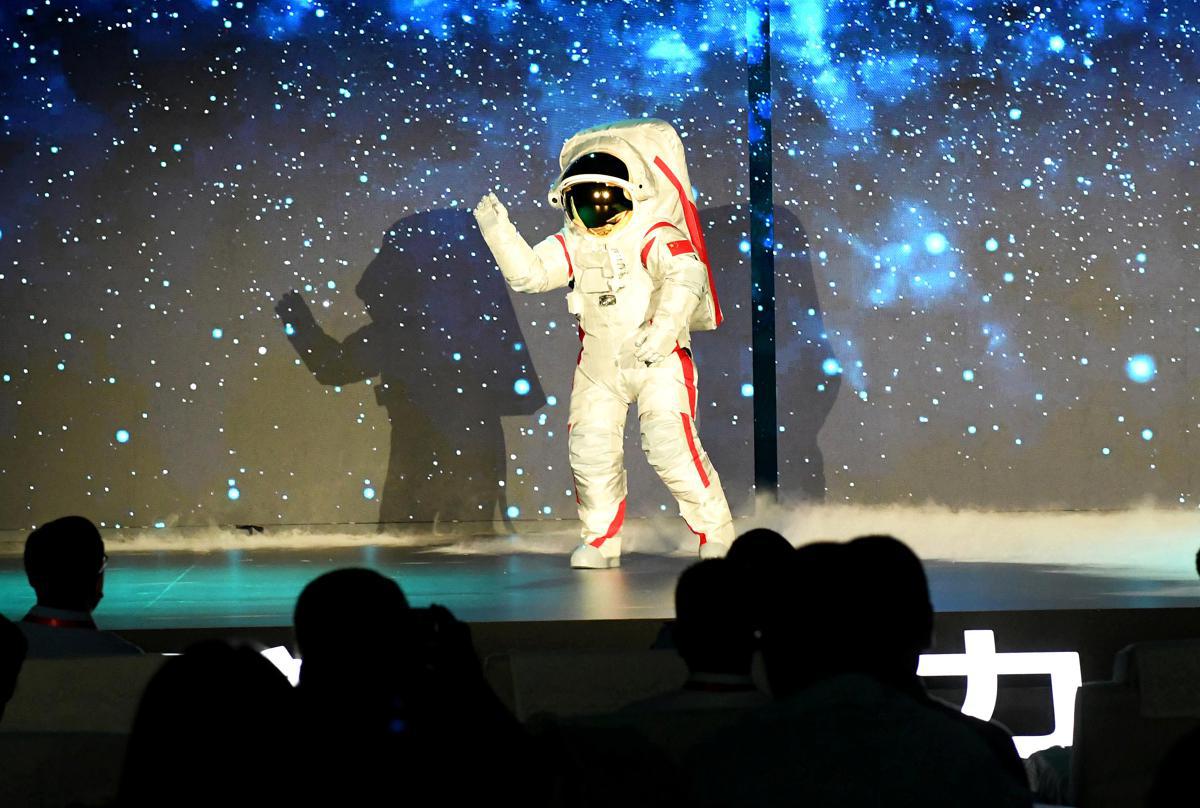Spacesuit for lunar missions unveiled

The China Manned Space Agency has unveiled the exterior design of the country's moon-landing spacesuit for the first time, soliciting its name from members of the public.
The white spacesuit with red stripes debuted on Saturday at the third Spacesuit Technology Forum in Chongqing.
The design incorporates exquisite traditional art and represents the spirit of bravery and exploration of the Chinese people, according to the agency.
The red stripes on the upper limbs are inspired by ribbons from the famous "flying apsaras" of Dunhuang art, while those on the lower limbs resemble rocket launch flames.
The agency said the spacesuit is made from protective materials that can effectively shield astronauts from complex environmental factors on the moon such as vacuum, extreme temperature, radiation and lunar dust.
The suit is equipped with a multifunctional integrated control panel that is easy to operate, as well as cameras for recording close-up and long-distance scenes. It also features flexible and reliable gloves, a panoramic glare-proof helmet visor, and joints adapted for low-gravity environments.
When wearing the special suits, the astronauts will be able to walk, climb, drive and conduct scientific tasks on the lunar surface, the agency said, adding that the suit is lightweight, compact, highly reliable and very safe.
China now has two types of spacesuits — one that is used for activities inside a spacecraft and the other for extravehicular activities, such as spacewalks.
The nation has announced its plan to conduct its first manned mission to the moon around 2030. To achieve the goal, it needs to develop a host of cutting-edge hardware, including a manned lunar lander, a new crew spaceship and the special suit for lunar surface operations.
Yang Yuguang, a senior space industry observer and chair of the International Astronautical Federation's Space Transportation Committee, said the spacesuit will support activities on the lunar surface that will likely last for several hours, so it must be lightweight and capable of resisting the impact of lunar dust.
"Preparing for a moon walk will be sophisticated and will involve many steps. It is understandable that astronauts will stay as long as possible outside their landing craft during each extravehicular mission to execute their tasks. Therefore, designers must make the spacesuit as light as possible to reduce the physical burden of astronauts," Yang said.
